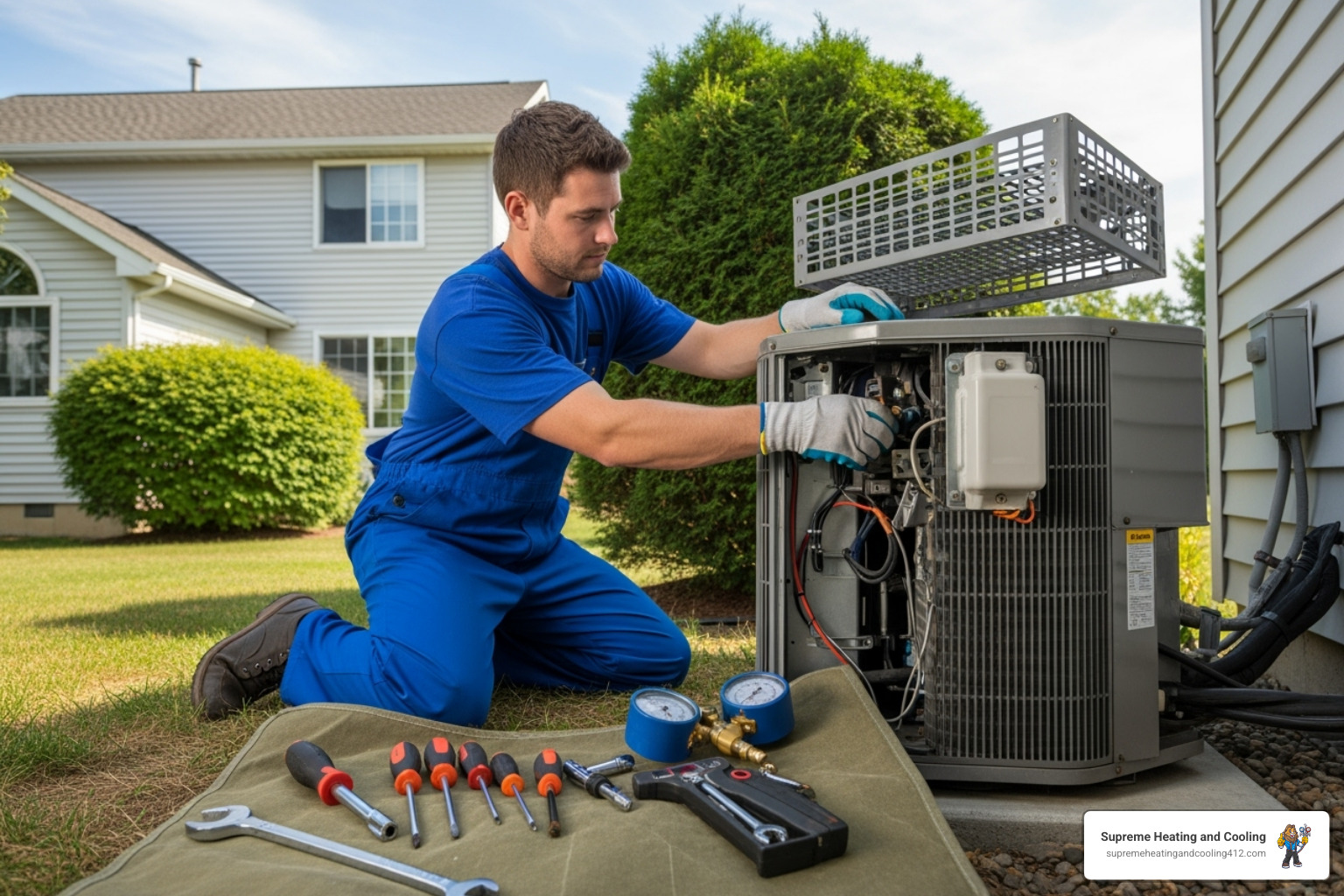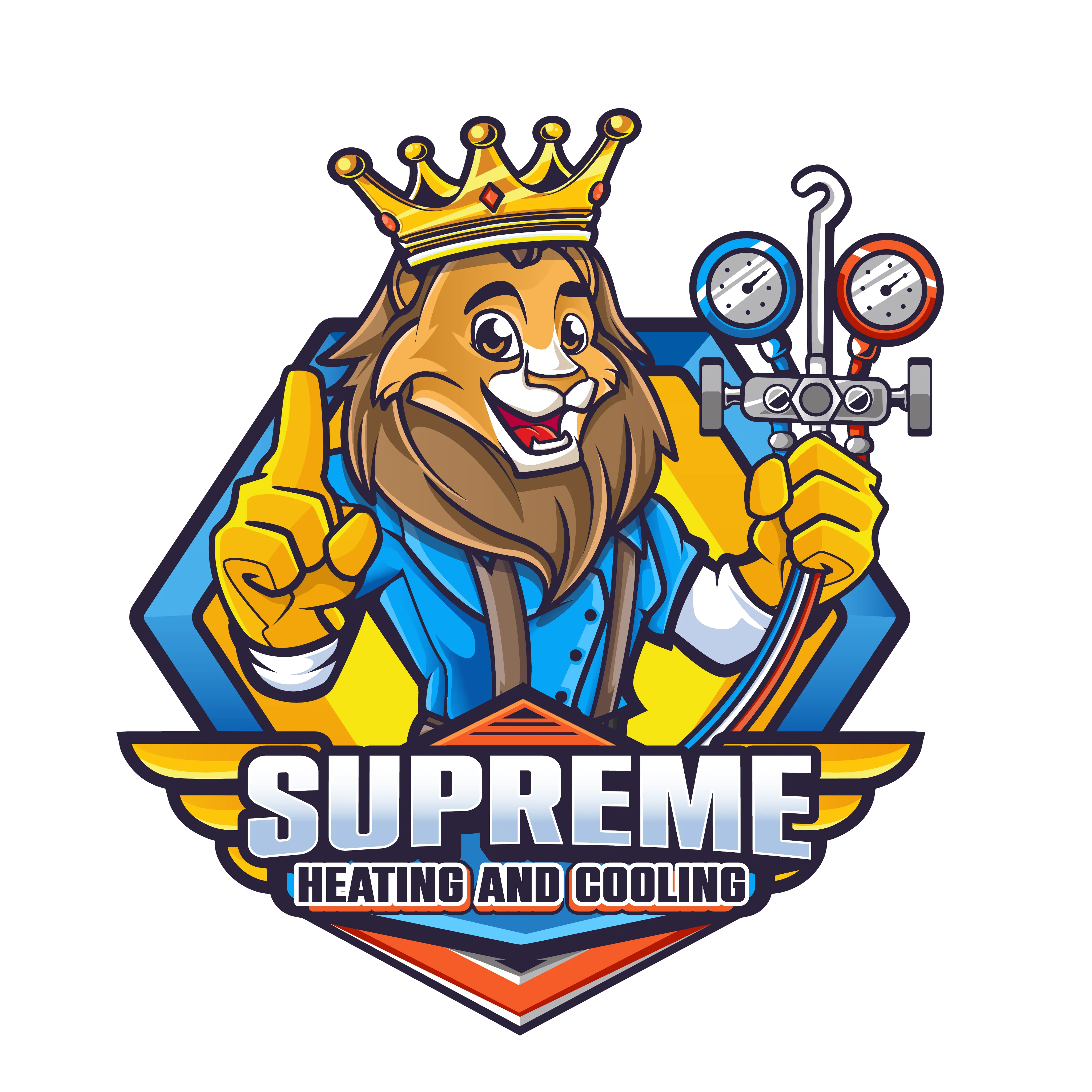Maintaining a comfortable home environment throughout the sweltering summers or unpredictable temperature shifts common in [Location] hinges heavily on the reliable performance of your air conditioning system. Regular AC service is the key to consistent cooling efficiency, preventing unexpected breakdowns, and ensuring your indoor air quality is optimal. Supreme Heating and Cooling understands the unique climate challenges faced by homes in [Location] and provides comprehensive, expert AC maintenance services tailored to keep your system running smoothly year-round.

The Importance of Regular AC Service for Your [Location] Home
Homes in [Location] frequently experience high humidity and soaring temperatures during summer months. These conditions place extra stress on your air conditioner, making regular servicing essential. Neglecting routine maintenance can lead to reduced cooling capacity, higher energy bills, and premature system failure. Regular AC servicing not only enhances comfort but also extends the lifespan of your entire HVAC system.
Many homeowners only schedule AC service when problems arise, but preventative maintenance is far more cost-effective. It allows for early detection of issues before they turn into significant repairs or complete breakdowns when you need cooling the most. Supreme Heating and Cooling’s detailed inspections and tune-ups are designed to keep your system efficient and reliable despite the demanding [Location] climate.
Key Components Checked During Routine AC Service
When Supreme Heating and Cooling performs regular AC service, we conduct a thorough examination of all critical components to identify wear, improve efficiency, and maintain performance. Typical components checked include:
- Refrigerant Levels: Ensuring the refrigerant is at correct levels to optimize cooling output without causing system strain.
- Air Filters: Inspecting and replacing dirty or clogged air filters to maintain airflow and enhance indoor air quality.
- Compressor Function: Verifying the compressor’s operation for signs of stress or malfunction that can compromise cooling.
- Evaporator and Condenser Coils: Cleaning these coils to prevent dirt buildup, which reduces heat exchange and system efficiency.
- Electrical Connections: Tightening and inspecting wiring and controls to avoid failures or energy waste.
- Thermostat Calibration: Ensuring the thermostat accurately reads indoor temperatures, allowing precise climate control.
- Drainage System: Checking and clearing condensate drains to prevent water leaks or damage.
- Fan Components: Assessing fan motors and blades for smooth operation and proper airflow distribution.
Each of these checks ensures your AC system operates at peak performance, reduces strain on essential parts, and discourages costly repairs down the line.
Expected Performance and Efficiency Improvements
Regular AC servicing helps your system maintain its designed cooling output and energy efficiency. Over time, dirt accumulation, refrigerant leaks, and mechanical wear can reduce your unit’s functionality by 5-15%, or more in extreme cases. With routine maintenance, you can expect:
- Improved Cooling Capacity: A serviced AC unit restores the airflow and refrigerant balance, making your home more comfortable even during heatwaves.
- Lower Energy Bills: Systems running correctly use less electricity, translating to noticeable savings on your monthly energy costs.
- Extended Equipment Lifespan: Regularly serviced units tend to last several years longer than neglected systems, offering better return on investment.
- Enhanced Air Quality: Clean filters and system components reduce dust, allergens, and humidity, improving indoor air quality for healthier living.
In [Location], where summer temperatures often soar above national averages, these benefits are critical to both comfort and financial well-being.
Recommended Service Intervals for Optimal Cooling
Supreme Heating and Cooling recommends scheduling AC service at least once a year, ideally before the peak summer season begins. This timing allows your system to prepare for increased demand, giving you peace of mind that it is ready to deliver efficient cooling.
For homes in dusty or pollen-heavy areas of [Location], or those with heavy system usage (such as large families or homes with pets), bi-annual service visits can provide additional assurance. During these checkups, we focus on fine-tuning as well as cleaning and parts inspection.
Seasonal preventative maintenance not only maintains cooling performance but also helps avoid mid-summer service emergencies when technicians are often booked and waiting times are longer.
How Regular AC Maintenance Reduces Costly Breakdowns
Unexpected AC breakdowns can be inconvenient and expensive, especially during extreme heat spells. Most failures stem from neglected maintenance issues that, if addressed earlier, would have been easier and less costly to repair. Routine servicing prevents breakdowns by:
- Detecting Refrigerant Leaks Early: Low refrigerant levels can cause compressor failure, one of the most expensive repairs.
- Preventing Electrical Failures: Loose connections or worn-out wiring may lead to malfunction that interrupts operation.
- Avoiding Motor Burnout: Lack of lubrication or debris buildup can strain motors, leading to overheating.
- Clearing Drain Blockages: Prevents water damage and system shutdown caused by clogged condensate lines.
- Replacing Worn Parts Proactively: Parts nearing the end of their life can be replaced during service, avoiding sudden shutdowns.
By routinely maintaining your AC, you reduce the risk of emergency repairs, costly part replacements, and loss of cooling comfort.
Broader Benefits of Consistent AC Servicing in [Location]
Beyond the immediate comfort and efficiency improvements, regular AC service contributes to a healthier home environment tailored for the distinct conditions of [Location]. Here’s how:
- Humidity Control: Proper maintenance ensures your AC removes excess moisture from the air, reducing mold growth and musty odors common in humid climates.
- Energy Sustainability: Efficient systems lower electricity consumption, aiding in environmental conservation without sacrificing comfort.
- Home Value Protection: An HVAC system that runs smoothly is a significant asset, enhancing the long-term value of your property.
- Peace of Mind: Knowing your air conditioner is reliable allows you to focus on other priorities without worrying about sudden breakdowns or inefficiencies.
Essential Tips to Maximize Your AC’s Performance Between Services
To support the benefits of professional servicing, consider these simple steps in your daily home routine:
- Change or clean air filters every 1-3 months, depending on local dust levels and usage.
- Keep outdoor condenser units clear of debris, foliage, and direct sunlight to improve airflow.
- Use programmable thermostats to avoid unnecessary operation when rooms are unoccupied.
- Seal windows and doors to prevent cool air escapes and reduce system workload.
- Schedule prompt repairs if you notice unusual noises, odors, or reduced cooling performance.
These practices complement the expert care from Supreme Heating and Cooling and ensure your AC system performs optimally throughout the year.
Maintaining your home’s comfort in [Location] is about more than just cooling. It requires attentive care to your air conditioning system through regular AC service. Supreme Heating and Cooling’s expert maintenance services provide peace of mind, energy efficiency, and lasting reliability so your home stays refreshingly comfortable no matter the season.

.svg)

.webp)


.svg)
.webp)
.svg)
